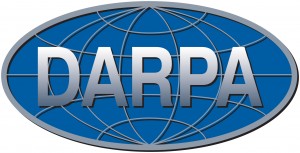
The Defense Advanced Research Projects Agency (DARPA) has announced the first group of teams from the Cyber Grand Challenge. The DARPA Cyber Grand Challenge is a tournament designed to increase the development of automated security systems able to defend against cyber attacks as fast as they are launched. It is aimed at the inadequacy of current network security systems in which attackers can take advantage of weaknesses to steal information. This is becoming an even greater concern as more and more devices, including vehicles and homes, get networked in what has become known as “the Internet of things.”
From DARPA’s announcement yesterday:
“Today’s security methods involve experts working with computerized systems to identify attacks, craft corrective patches and signatures and distribute those correctives to users everywhere—a process that can take months from the time an attack is first launched,” said Mike Walker, DARPA program manager. “The only effective approach to defending against today’s ever-increasing volume and diversity of attacks is to shift to fully automated systems capable of discovering and neutralizing attacks instantly.”
More than 30 teams of computer security experts from around the world have come together to compete in this Cyber Grand Challenge. Most competitors have entered on the “open track” available to self-funded teams. A parallel “proposal track” consists of teams invited and partially supported by DARPA to develop automated network defense technology. Those teams represent a mix of participants from industry and academia and will receive seed funding from DARPA until their performance is tested in open competition involving all teams at a major qualification event scheduled for June 2015. Additional teams may register to participate through November 2, 2014.
The winning team from the Cyber Grand Challenge finals stands to receive a cash prize of $2 million. Second place can earn $1 million and third place $750,000.
For more information about the Cyber Grand Challenge please see the full DARPA news release from June 3, 2014.









